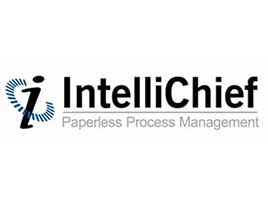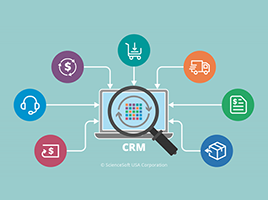
ERP News – worldwide – erpnews.com – The benefits of Enterprise Resource Planning (ERP) software go beyond the capabilities of the system itself. The planning, implementation and eventual adoption of an ERP solution, by its very nature, causes a company to innovate. Innovation through ERP can make your company work smarter, faster, and ultimately achieve more. Throughout my career in roles as a CPA, business development director, technology division leader, CFO and CEO, I have seen companies literally transformed by the adoption of an ERP system. Below are the top five most transformative ways I’ve witnessed ERP driving innovation for business.

1. Consolidating Independent Systems
Ask the average IT manager how many systems they oversee and you might (or might not) be surprised. It’s not uncommon to have up to 30 different systems. How are those systems being managed and how connected are those systems expected to be? ERP can eliminate many of those disparate systems into one single source, or a system where through integration, everything is connected. The problems created by multiple separate systems can be many. ERP can eliminate many redundant systems and save your team from having to set up users in multiple places, reduce consolidation errors, and provide the ability to look horizontally and vertically across the organization, all from one source. Consolidating independent systems improves operational efficiency, increases agility and reduces the possibility of failed integrations.
2. Business Process Improvement
During ERP implementation projects, it is an industry best practice for your partner to work with you to reevaluate business processes to ensure that they function well in within the new software solution. This can be a very healthy activity as you realize which processes might be hindering efficiency and holding back improvement. It’s common for organizations to stick to what they know and do things the same old way. As you examine processes through the initial phases of the ERP implementation it’s easier to see what’s broken. We encourage companies not to “pave the cow paths,” which means don’t just transfer old processes to the new system. Anyone entering an ERP implementation project is encouraged to take a fresh look at current business processes in the context of the new system and determine what works best.
During this review phase, you’ll benefit from getting another perspective, find things that are at risk, and realize some processes aren’t current industry best practices. Many times you might not even know a process is broken until it gets examined in more detail.
3. Real-time Information
Having immediate access to important company data allows team members to be more innovative and change the way you serve customers. When you have access to real-time sales data, you can react more quickly to sales trends and make sure the right products are in stock. This real-time information is valuable for the leadership, trickles down to the purchasing team, and affects everyone in between.
From a personal perspective at our own consulting firm, Stoneridge Software, the biggest impact ERP has had on our organization has been in being able to use real-time information to make better decisions. Based on the immediacy of the information, we have adjusted our billing processes and even created new service offerings to reflect what clients are requesting.
4. Collaboration
With the integration and real-time information available through ERP, managers and departments are better able to work together to increase operational harmony. Through role-based dashboards, users across the organization are able to quickly access the information and relevant data to do their jobs efficiently and quickly. Projects and processes are more easily tracked when everything is connected. Through the collaboration opportunities provided through ERP, you have access to the information that pertains directly to your needs.
For example, collaboration is extended through inherent solutions like Skype for Business inside Microsoft Dynamics ERP software, both internally, and with customers and vendors. In this case, if you are reviewing a vendor invoice and you have a question, you can instantly chat with them to get an answer.
5. Efficiency
ERP Implementations really drive overall process efficiencies and innovation. When done well, ERP can reduce operational costs and improve business processes. An integrated ERP system allows for more accurate information, reducing risk in operational activities and allowing for improved forecasting.
The efficiency derived from an ERP implementation comes from reduced manual effort, ready access to critical information and less switching between systems. The new capabilities acquired from the ERP project drives innovation in how your employees can better serve customers’ needs. The entire project allows your company to mature its processes and accomplish more with the same or reduced effort.




















